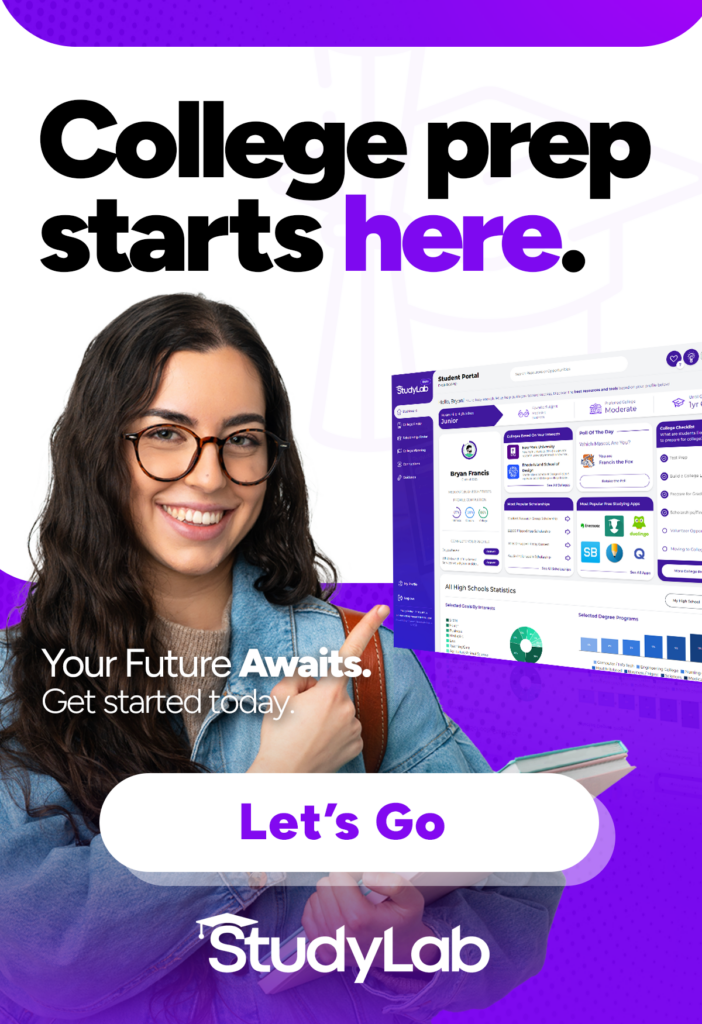Teachers can help prepare students for the real world. Here are some ways that teachers can help students be successful in their future endeavors.
Preparing for graduation and next steps can be stressful for your students. High school students feel immense pressure to make decisions about their future—including college and careers. In fact, the United States has more stressed students than any other country. So, what can schools do to help students prepare for the next stage in their lives?
Students need additional support, and teachers can help students prepare for their next steps! In this blog post, we’ll cover how to prepare students for the future, ways teachers can support students during this stressful time, how to guide students to their right path, and resources that can help.
What Can Teachers Do to Prepare Students for Their Next Steps?
With the right resources and some thoughtful planning, teachers can get their students on the right track.
So, what can teachers do to help students succeed? It all starts with identifying the various paths students might choose post-graduation. Here are 10 things teachers can do today to prepare students for the future.
How to Help Students with College Planning
College is often viewed as the traditional path for students when they graduate high school, and this is expected to continue over time.
Generation Alpha—born between 2010 and 2024—are expected to remain in education longer and start their careers later than their generational predecessors. The oldest members of this generation started high school this year, so it’s especially important to keep their unique needs in mind.
Here are 5 things teachers can do to prepare students for college:
1. Provide Support for Standardized Tests
Standardized tests—like the SAT and ACT—can be stressful for students. A little extra support can go a long way!
To help students prepare for standardized tests, make sure they’re aware of the SAT/ACT prep offerings at your school and in your community. There are likely a variety of courses in your area, so stay informed and encourage your students to register.

Your library may even have study materials they can borrow for free—so be sure to let students know what resources are available to them. It’s also helpful to encourage students to take the PSAT. These tests can help set students up for success when it comes time to take the SAT.
However, keep in mind that not all students are good test-takers! If you notice a student is struggling, remind them that not all colleges require test scores. More and more schools are becoming test-optional, which can alleviate some of the stress your students are feeling.
2. Recommend College Search Tools
Some students don’t know where to start their college search. If your school offers tours to local colleges, make sure your students know about them.
It can also be helpful to point your students in the direction of a College Finder tool. These tools can filter colleges by size, study duration, major, and more. That way, it’s easy for students to find colleges that fit their needs.
3. Help Students Draft College Essays
Some high school English teachers build a college essay draft into their lesson plans. But regardless of which classes you teach, there are plenty of ways to help your students with their college essays.
Point your students in the direction of high-quality resources, like CollegeAdvisor’s 30+ Short Essay Examples. You can also make yourself available to students to brainstorm topics, or offer to review and proofread their work. Either way, they’ll be grateful for your help!
4. Recommend Scholarships
What’s more stressful than choosing a college? Figuring out how you’ll pay for tuition.
Paying for college is a significant stressor for students. Speak with your school’s guidance counselors—they may have lists of available scholarships. If you come across scholarship opportunities, keep copies of a list in your classroom. That way, students have the information they need readily available. If you’re a high school teacher in the U.S., your students are likely eligible for our $10,000 scholarship. We have the perfect printable flyer for your classroom!
Students might also need support with their scholarship applications. Offering to help them with a quick proofread of their scholarship essay can help them feel confident in their work. And if they need a recommendation letter or a reference, offer your support.
5. Provide Resources For Students to Self-Explore
Students know how important college prep is. But with so many resources available, it can be overwhelming to figure out where to start.
Providing a list of the best college prep resources for students can give students a starting point for their college prep process.
How to Help Students with Career Planning
To prepare students for the future, it’s important to make them aware of their options. College isn’t for everyone—and that’s ok!
Gen Z high school graduates are increasingly choosing to postpone college and choose other paths. For the high school class of 2023, 55% opted out of a traditional 4-year college path. Based on past data, this trend will likely continue.
Preparing students for the future is important regardless of the path they choose. Here are 5 things teachers can do to prepare students for careers.
1. Host Career Days or Similar Events
If possible, hosting a career day could be incredibly helpful for students. Providing opportunities to speak to professionals in different career fields can help students figure out what path they’d like to take.
This can also provide a promising networking opportunity; students can connect with mentors and industry professionals that may benefit them in the future.
2. Encourage Students to Take Career Tests
Personality and career tests can help students figure out their skills, best qualities, and desires. There are dozens of free online career tests that students can take to point them in the right direction.
3. Develop Soft Skills
Include lessons that help students develop their soft skills. Skills like critical thinking and problem-solving can help students throughout their lifetime
4. Create Thoughtful Lesson Plans
There are several things you can include in your lesson plans to help your students explore different career paths.
Consider including technology and digital literacy in your classroom. For example, give students the freedom to choose different formats for their projects. Instead of requiring an essay, consider letting students explore formats like video, presentations, infographics, custom websites, and more.
If you have space in your curriculum, consider including a project that will encourage students to explore different career options. Bringing the outside world into your classroom is a great way to engage your students and prepare them for their futures.
5. Encourage students to be well-rounded
Not all students will be excited about every school subject. To help students increase their career options, encourage them to be well-rounded.
If students seem to believe that the skills that they need for their future success are in another class, remind them that all subjects have value. Doctors still have to write grant proposals and authors still have to understand sales numbers. Regardless of what profession your students choose, every subject they take in school will benefit them.
What else can teachers do to prepare students?
52% of high school students feel pressure to make decisions about their future too soon. So, reassure students that while the “next step” seems like a big one, it’s really a series of small steps. Help students by:
- Providing Support for Standardized Tests
- Recommending College Search Tools
- Helping Students Draft College Essays
- Recommending Scholarships
- Providing Resources For Students to Self-Explore
- Hosting Career Days or Similar Events
- Encouraging Students to Take Career Tests
- Developing Soft Skills
- Creating Thoughtful Lesson Plans
- Encouraging students to be well-rounded
Above all, take the pressure off; many students need a reminder that it’s okay to try things and change their minds.
Students should lead their learning. To learn what your students are most interested in, sign up for StudyLab. StudyLab provides teachers with valuable insights into their students and your school, in addition to free resources for your students.


